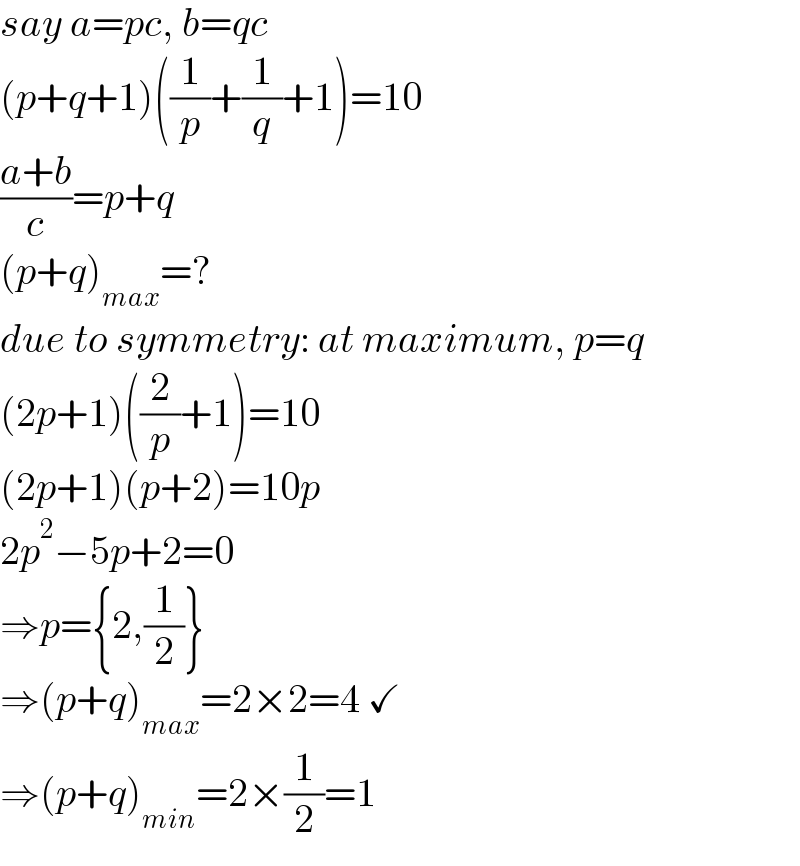
Question Number 195331 by Shlock last updated on 30/Jul/23

Answered by mr W last updated on 06/Aug/23

$${say}\:{a}={pc},\:{b}={qc} \\ $$$$\left({p}+{q}+\mathrm{1}\right)\left(\frac{\mathrm{1}}{{p}}+\frac{\mathrm{1}}{{q}}+\mathrm{1}\right)=\mathrm{10} \\ $$$$\frac{{a}+{b}}{{c}}={p}+{q} \\ $$$$\left({p}+{q}\right)_{{max}} =? \\ $$$${due}\:{to}\:{symmetry}:\:{at}\:{maximum},\:{p}={q} \\ $$$$\left(\mathrm{2}{p}+\mathrm{1}\right)\left(\frac{\mathrm{2}}{{p}}+\mathrm{1}\right)=\mathrm{10} \\ $$$$\left(\mathrm{2}{p}+\mathrm{1}\right)\left({p}+\mathrm{2}\right)=\mathrm{10}{p} \\ $$$$\mathrm{2}{p}^{\mathrm{2}} −\mathrm{5}{p}+\mathrm{2}=\mathrm{0} \\ $$$$\Rightarrow{p}=\left\{\mathrm{2},\frac{\mathrm{1}}{\mathrm{2}}\right\} \\ $$$$\Rightarrow\left({p}+{q}\right)_{{max}} =\mathrm{2}×\mathrm{2}=\mathrm{4}\:\checkmark \\ $$$$\Rightarrow\left({p}+{q}\right)_{{min}} =\mathrm{2}×\frac{\mathrm{1}}{\mathrm{2}}=\mathrm{1} \\ $$
